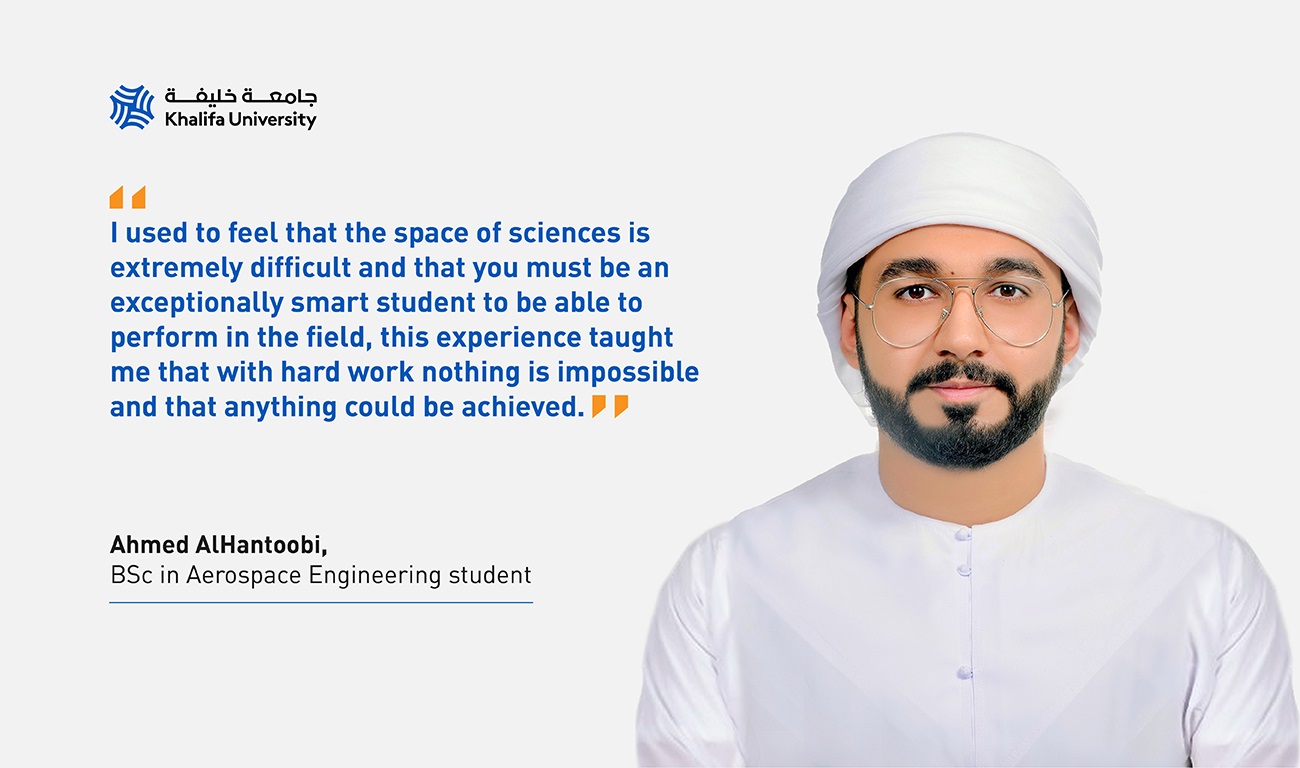
A Q&A with Ahmed AlHantoobi, BSc in Aerospace Engineering student at Khalifa University, about his Research Experience at the Mohammed Bin Rashid Space Centre (MBRSC) in UAE. As a result of his Research Experience, Ahmed successfully published his research on Mars’ magnetism in Geophysical Research Letters, a prestigious journal that publishes high-impact research in geoscience disciplines.
Ahmed’s Research Experience at MBRSC was organized through the Research Experience for Undergraduates (REU) program.
View this post on Instagram
MBRSC provided an exceptional experience in research alongside scientists who have been studying the field of space sciences for years. Considering my curiosity and interest in the field this was an opportunity I couldn’t miss as it’s rare to find such an experience.
My internship focused on the magnetic anomalies on Mars and if we can explain the strong magnetic magnitude of those anomalies use the crustal mineralogy.
Throughout this experience I have heavily developed my MATLAB, reading and communications skills. The MATLAB skills developed mainly from the analysis I had to run whilst the reading and communication skills came through weekly meetings where we would read and discuss a specific scientific paper which increased my knowledge in the field.
For many years the exceptionally strong magnetic anomalies of Mars have been clashing with models of Mars’ ancient global magnetic field as their magnitude isn’t explained. My research focused on attempting to explain the strong magnetic anomalies on Mars using mineralogical composition of the uppermost crust. The findings of our research suggest that Mars’ ancient global magnetic field wasn’t of exceptional strength however the rocks in some regions on Mars are mineralogical enhanced making them exceptionally well at recording the magnetic field.
The long nights I would be running the analysis and finally getting the result you were hoping for meant the world to me.
I used to feel that the space of sciences is extremely difficult and that you must be an exceptionally smart student to be able to perform in the field, this experience taught me that with hard work nothing is impossible and that anything could be achieved.
I am planning to enter graduate school in a field related to space sciences (not sure what yet) but the goal is to become a researcher in the field.
The arrival of the Hope Probe shows the commitment of the UAE to develop the field of science and technology in the region and it is a clear investment in us, the youth. As a student, I am very excited as this means that more data is available and a better understanding of Mars’ atmosphere will be possible and hopefully us students can drive and stimulate this growth in the field using the foundations hope has put into place.
Erica Solomon
Senior Publication Specialist
14 February 2021